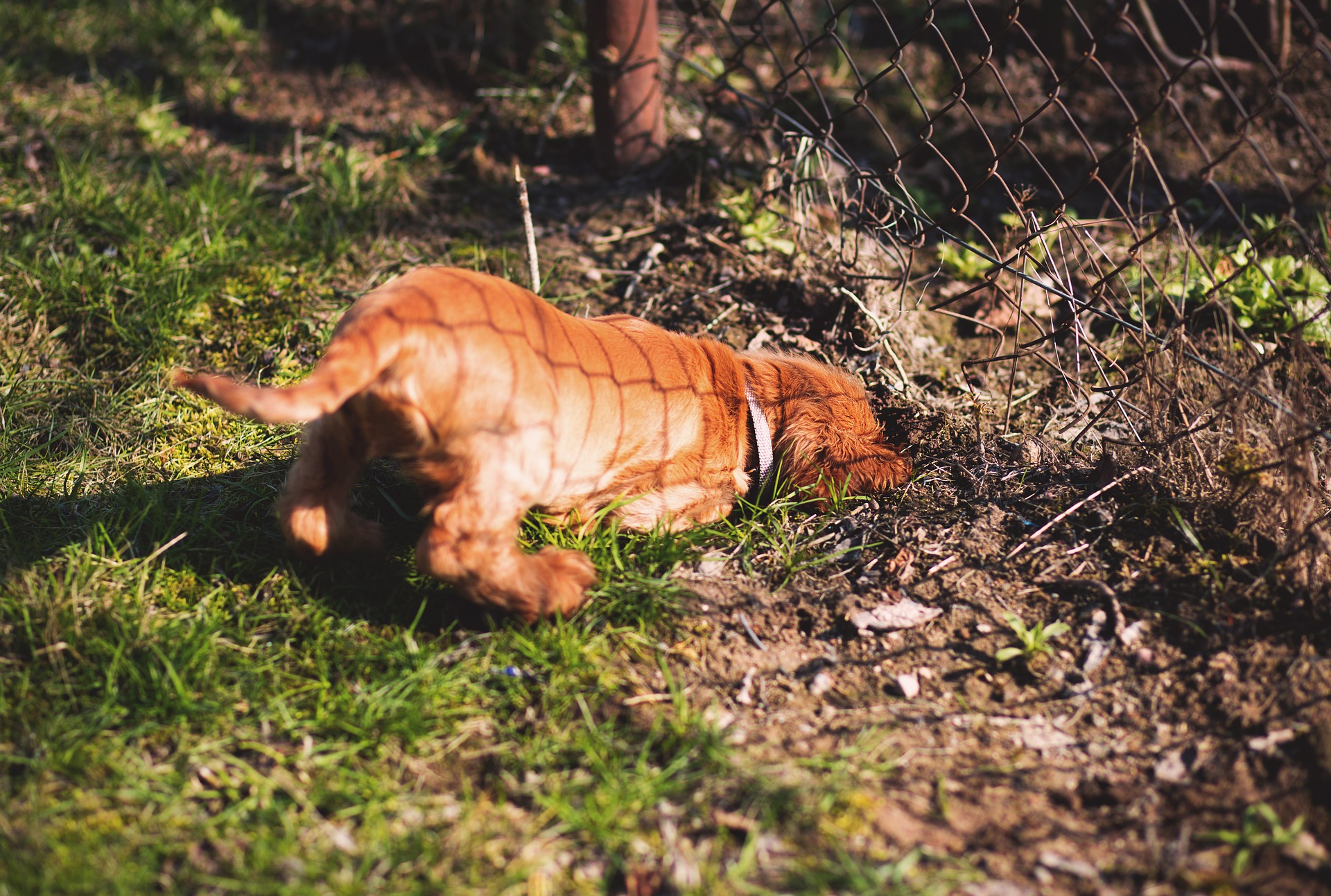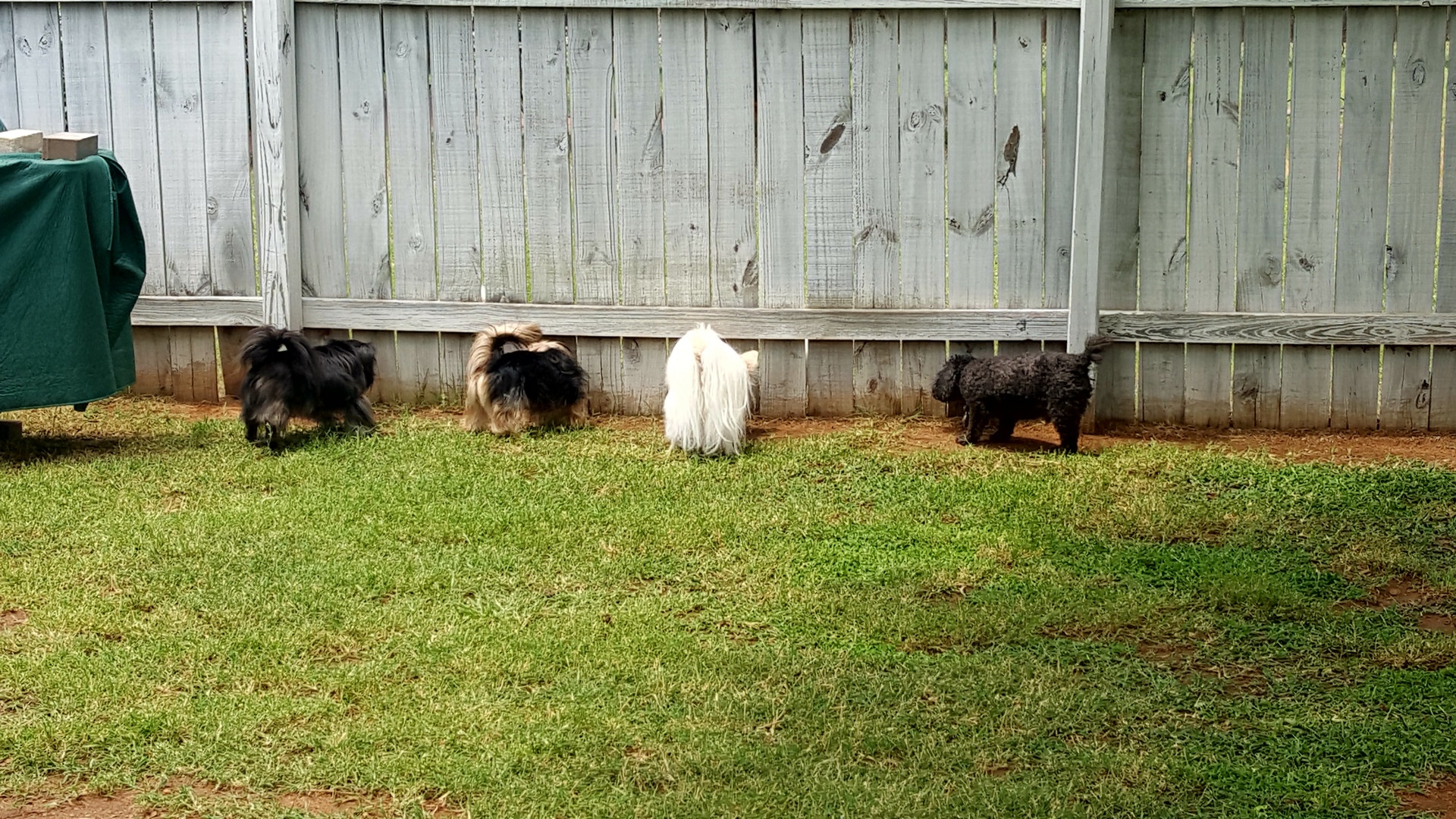If you’re hell-bent on getting to the bottom of why your dog is digging holes all of a sudden then you’re not alone. In fact, thousands of dog owners have been there, done that, and got the t-shirt to prove it.
Now, let me just start by saying that I’ve dealt with my fair share of digging in past. I’ve seen it all from jailbreakers to dirt eaters, I’ve even witnessed a dog dig a hole for the sole purpose of burying his own poop.
Here’s the thing though…
Sometimes this behavior is as innocent as your dog wanting to dig a cool shady spot to relax and get out of the sun.
Other times it can be a little more problematic and be a result of boredom, frustration, or even just a way to get your attention.
However, if you find yourself dealing with the latter, and you’re looking for a quick and simple way to stop your dog’s obsessive digging habits… then here’s the good news.
There is in fact a very simple way to get your dog to stop randomly digging holes.
Better still, it has nothing to do with shock collars, yelling at your dog (never do this by the way), and instead involves applying a few simple games and techniques that engage your dog on a mental level.
This is why before you do anything else, I’d highly recommend taking a look at the Brain Training For Dogs program from Adrienne Farricelli.
Watch the training, apply what Adrienne teaches, and you should see a huge improvement in your dog’s ability to refrain from digging holes.
Here’s the link to take a look: Click Here To Discover How To Finally Stop Your Dog Randomly Digging Holes While Creating The Well Behaved, Obedient Dog Of Your Dreams… Even If You’ve Tried & Failed Before!
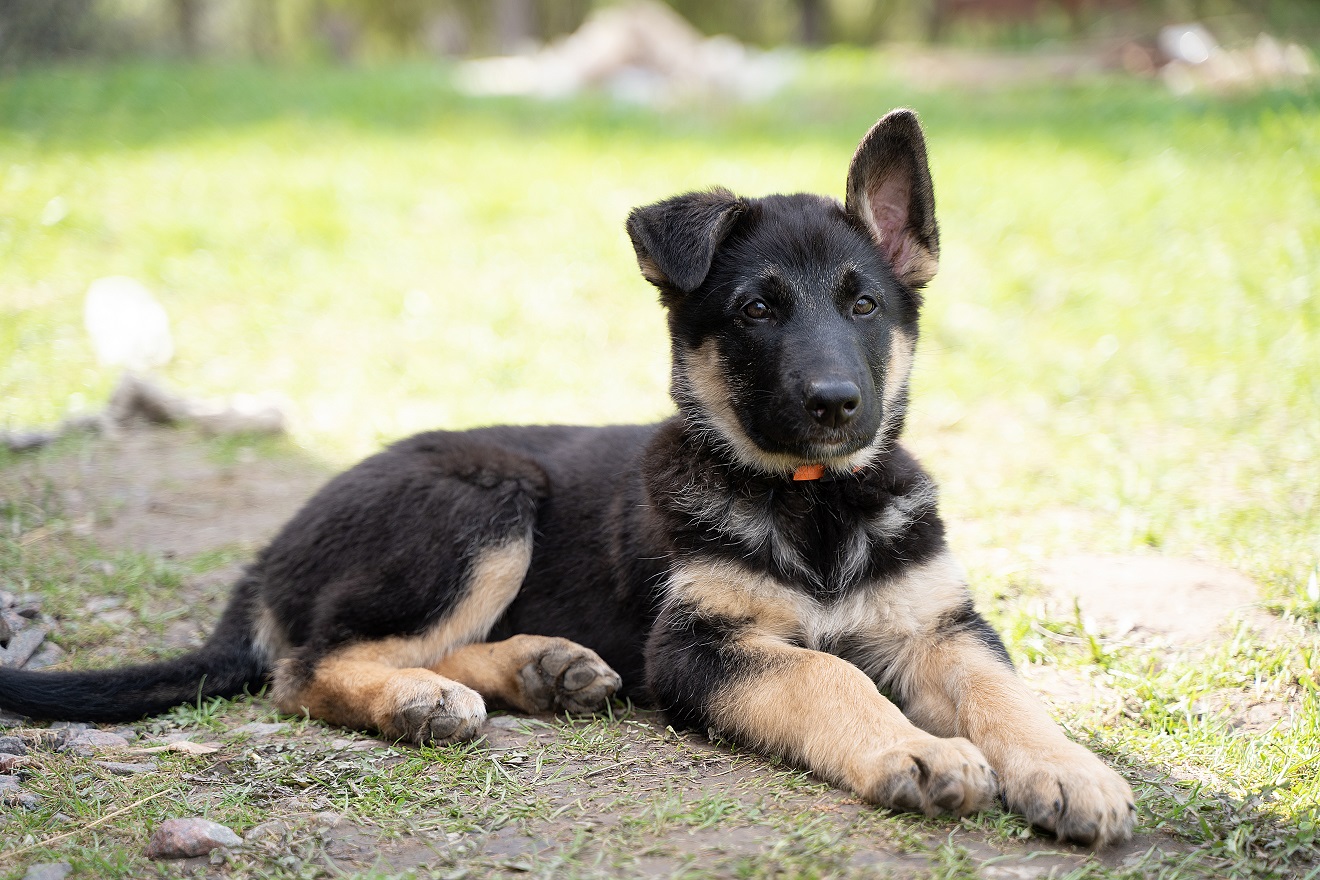
Why Do Dogs Dig Holes?
It can be quite confusing trying to establish exactly what is causing your dog to furtively dig at any opportunity.
Your dog may appear otherwise its familiar happy self, but make no mistake that there will be a reason behind this sudden shift in behavior.
Remember that from your dogs perspective, digging simply feels good.
And as highly sensitive animals, touch and texture play a key role in how they interpret and interact with their world.
So be it grass, grit, gravel, or sand they will always like to have a scratch around to get a familiarity with their ground.
However, when that natural behavior becomes excessive, you can often wonder what the cause could be.
So Why Is My Dog Digging Holes All Of A Sudden?
#1 – Natural Instinct
As much as Fido might be a fluffy ball of cuteness, never forget that many generations ago your dog’s ancestors depended on hunting to survive.
Some breeds may retain such instincts more than others due to having been used by humans in this capacity for hunting and/or defensive purposes.
Regardless, should your dog catch a scent that there may be some small critters encroaching on their turf, then it is natural for them to try and dig them out.
This is just as true for urban as well as rural regions.
And to make this matter more confusing – your dog may just be checking just in case!
#2 – Anxiety
As we’ll discuss later, this is often the key reason for the development of a digging problem.
Separation anxiety (leaving your dog alone and unstimulated for too long) has many characteristics, and digging is one of the most prominent.
So if a change in your daily schedule has resulted in your dog being left in the yard longer than usual, there is a high chance that they will take to digging to help relieve the stress.
Digging provides not just something physical for them to focus on, but also a mental distraction from that pervading sense of isolation/abandonment.
Never assume your dog will just ‘get used to it’ – 99% of the time it will only become worse unless the issue is addressed.
#3 – Denning
It is perfectly natural for dogs to dig a den.
Much like humans can become passionate about gardening, dogs can become obsessive about building deeper and better dens to hide in.
That nicely tended flower arrangement with the soft topsoil makes for a perfect starting place…
To an extent, this can also be related to anxiety, but it is equally a matter of your hound wanting to feel sheltered.
Remember that not only are dens cooler in warm weather, but they are correspondingly warmer in cool weather – so a den provides a year-round solution.
Obviously, this is a particular issue for those who keep larger breeds, simply because they not only require larger and deeper holes but also have the strength to do so.
Dog Digging Up The Yard? Click Here To Discover How To Finally Stop Your Dog Randomly Digging Holes While Creating The Well Behaved, Obedient Dog Of Your Dreams… Even If You’ve Tried & Failed Before!
#4 – Escape!
Don’t worry. They still love you really!
But even the most doting pet can feel a natural instinct to escape.
As one would expect, this can be commonly associated with anxiety but may also arise commonly in particular breeds.
Sight-hounds who are ‘hardwired’ into giving pursuit may become literally uncontrollable when they see something (rabbit/cat etc) through a fence.
Sure, they may not be able to scale it, but you bet they will instead try to go underneath.
Even if the perimeter extends a few feet under the soil, they will keep trying and look for weak spots even long after their target has crossed the horizon.
#5 – Attention Seeking
When you have kept a dog for a long time it will naturally become settled into a routine.
This ought to include enough stimulation and exercise to meet their needs – and if for whatever reason that breaks down, sooner or later your pet is going to let you know.
While this may exhibit itself in many ways, letting your dog to just roam around the yard is no substitute for a stimulating walk.
Just like we do, they become bored with the same old environment.
So what better way to receive attention (good/bad makes no difference) than to dig up the flower garden?
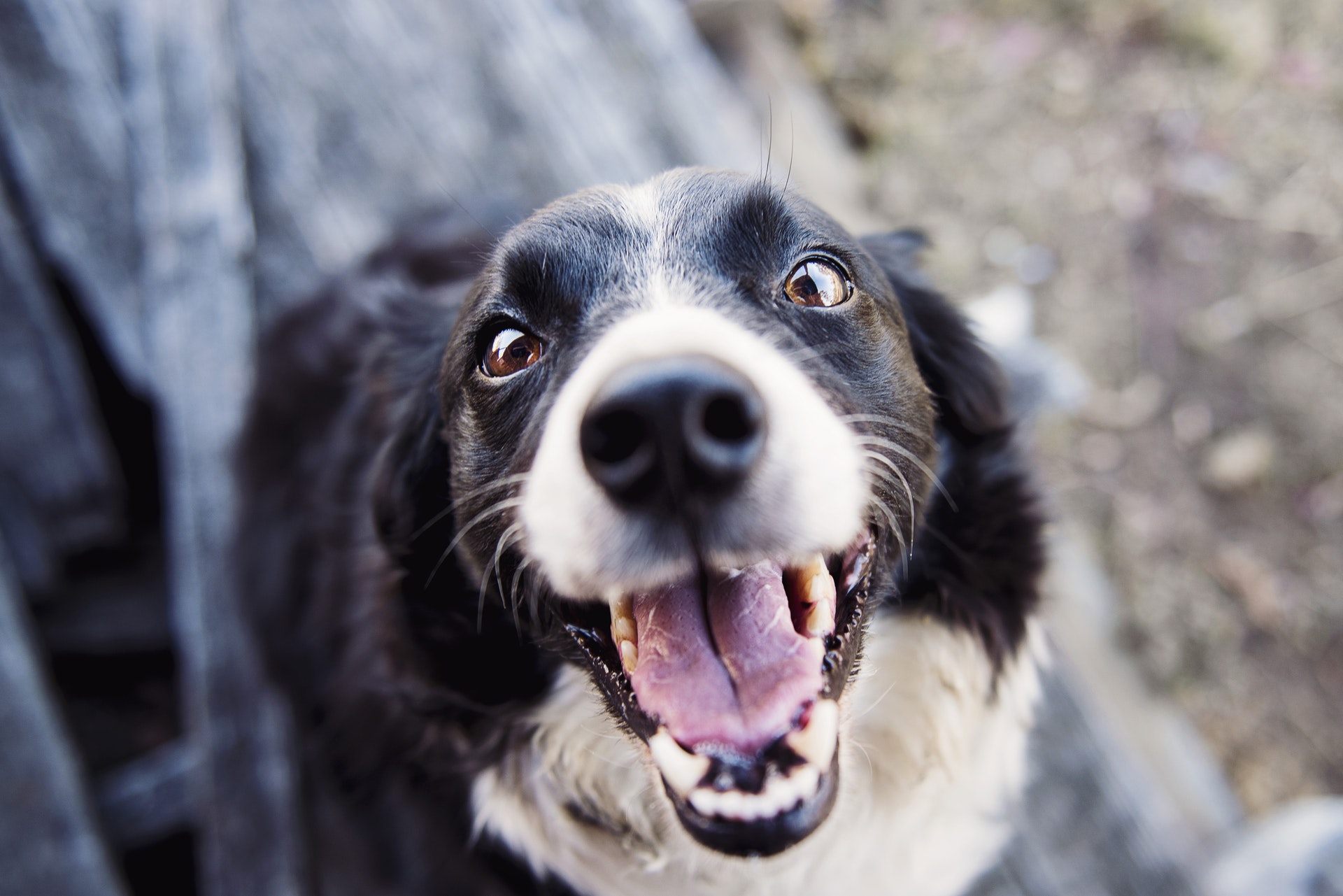
The Problem With Digging
A digging problem is a little different from most other kinds of canine behavioral problems.
Your dog may be the most perfect buddy in the world but just happens to dig like crazy.
So it is essential that a responsible owner (even the most lackluster of yard keepers) addresses it though because it can easily serve as a catalyst for further issues to emerge.
Don’t assume it is just a quirk, because digging can cause all sorts of problems – and some are very dangerous indeed.
Here’s why training is necessary…
#1 – Damage To Property
Most people would be concerned that their yard suddenly begins to resemble the lunar surface.
But even for those who don’t, the fact remains that this is destructive behavior that will before too long start to spread.
Many dogs who start to demonstrate digging will start to ‘test’ out the floors and furniture inside the home.
Alternatively, if they have easy access to a neighbors yard, chances are that they will start digging over there too – and we all can guess what troubles that may cause.
Dogs kept in enclosed yards yet allowed to dig will eventually (they are incredibly persistent creatures) break down that fence.
This, of course, leads to…
#2 – Escape
Even the most homely of dogs will likely head off exploring on its own should the opportunity suddenly arise.
Think about it, if you were kept on a leash or enclosed yard for years – wouldn’t you like to see what’s going on down the block?
Finally, a chance to discover the source of that delicious scent that’s been wafting around all those years?
Just because your dog is chipped and registered doesn’t mean that it will not come to harm from all kind of potential permutations.
So if you leave your dog unsupervised in the yard and it develops a digging habit – there’s a fair chance this can happen (it does millions of times a year).
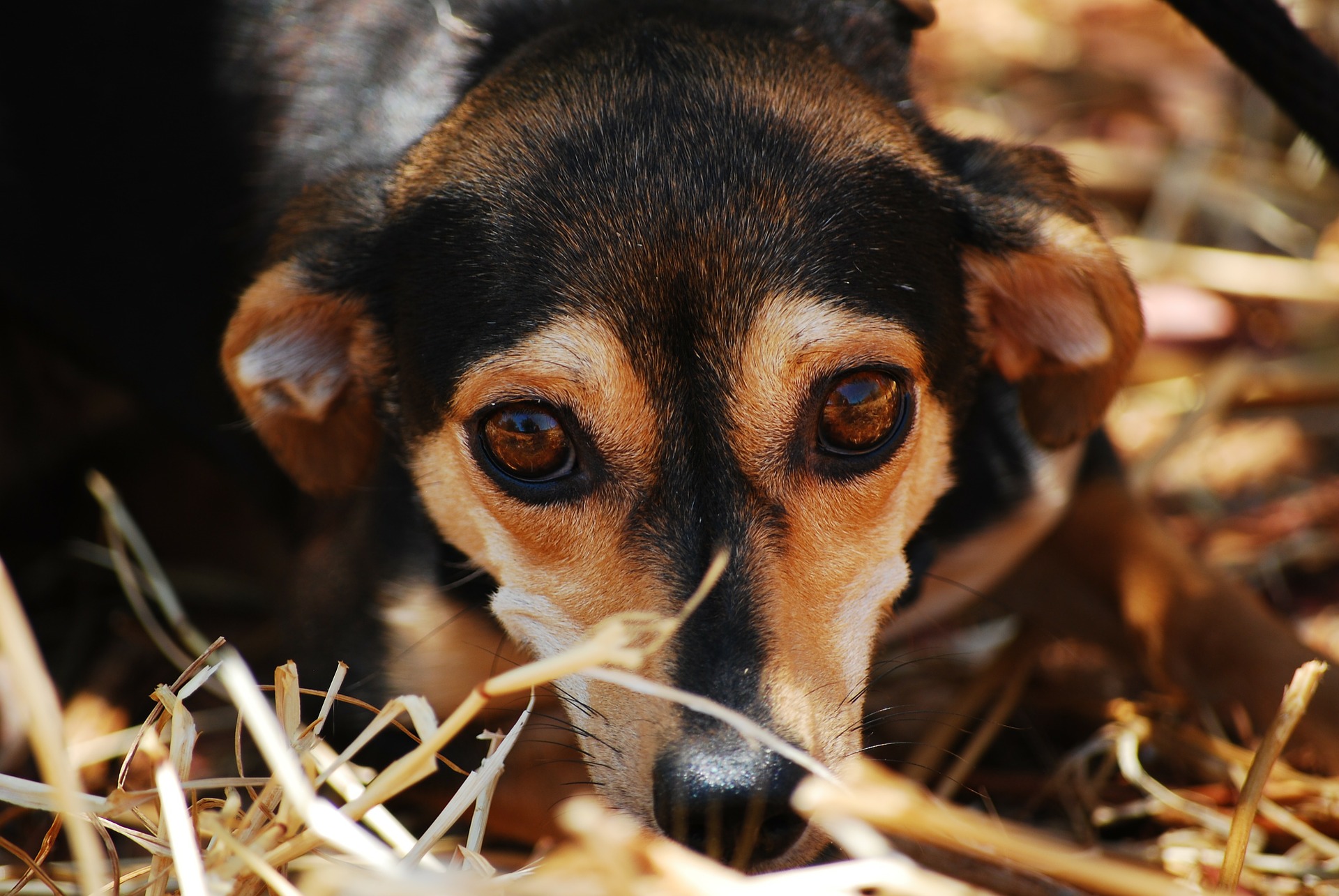
#3 – Digging Injuries
Who knows what could be lying underground?
Perpetual digging will eventually degrade and damage your pal’s paws and claws, and there could be all kinds of things long lost under the topsoil.
A rusty nail is a classic example but let’s leave the rest to the imagination.
#4 – Loss Of Respect
If your dog is just digging to make a series of dens, then it is going to be a little confused and upset when their owner rolls up and grumpily fills them back in.
From the dogs perspective that is a simple case of “All that hard and essential work was for nothing.
Guess I’ll have to start again somewhere else”.
Repeated time after time is just going to accentuate and frustrate the dog even more.
How To Stop Your Dog Digging
Hopefully, by this stage, you may have started to identify what could be causing your dog to dig and the risks of not addressing it right away.
Now, there are several approaches towards correcting the issue, but most owners find a combination (or all) of the following to be effective.
As mentioned above this style of retraining is pretty straightforward in the vast majority of cases.
Even better, these tips serve as solid principles for correcting or better preventing, the development of other inappropriate behavior.
#1 – Measure Your Reaction
So Fido has dug up another corner of the lawn has he?
While we may be pretty annoyed by this, the last reaction we want to express is one of anger directed clearly towards them.
In the overwhelming majority of cases where otherwise well-behaved canines play-up, they do so to seek attention/gain a reaction.
It does not matter to them whether this is positive or negative.
That cannot be stressed enough!
The only way to respond to this is by keeping cool and simply ignoring the dog.
Do not even make eye contact and instead carry on your normal routine.
No petting, no reacting even if they come inside and start barking or pawing.
Eventually, your dog will get bored and then settle down.
After around a certain time (this is up to you – 5-10 minutes works for me!) of perfect behavior just lavish them with fun and attention.
It may take a few occasions for your dog to figure out that digging = unproductive, but mark my words they will sooner rather than later.
After a period of good behavior, let’s say a week without digging, isolate your dog (having someone else take them for a walk is a solid choice) and fill in the holes.
Monitor their behavior when they return home.
Give them a warm welcome and free access to the yard. Should they notice that their holes have been filled in, and start digging again, just repeat the process and consider extending the time to a fortnight before filling in the holes.
Dog’s Digging Driving You Crazy? Click Here To Discover How To Finally Stop Your Dog Randomly Digging Holes While Creating The Well Behaved, Obedient Dog Of Your Dreams… Even If You’ve Tried & Failed Before!
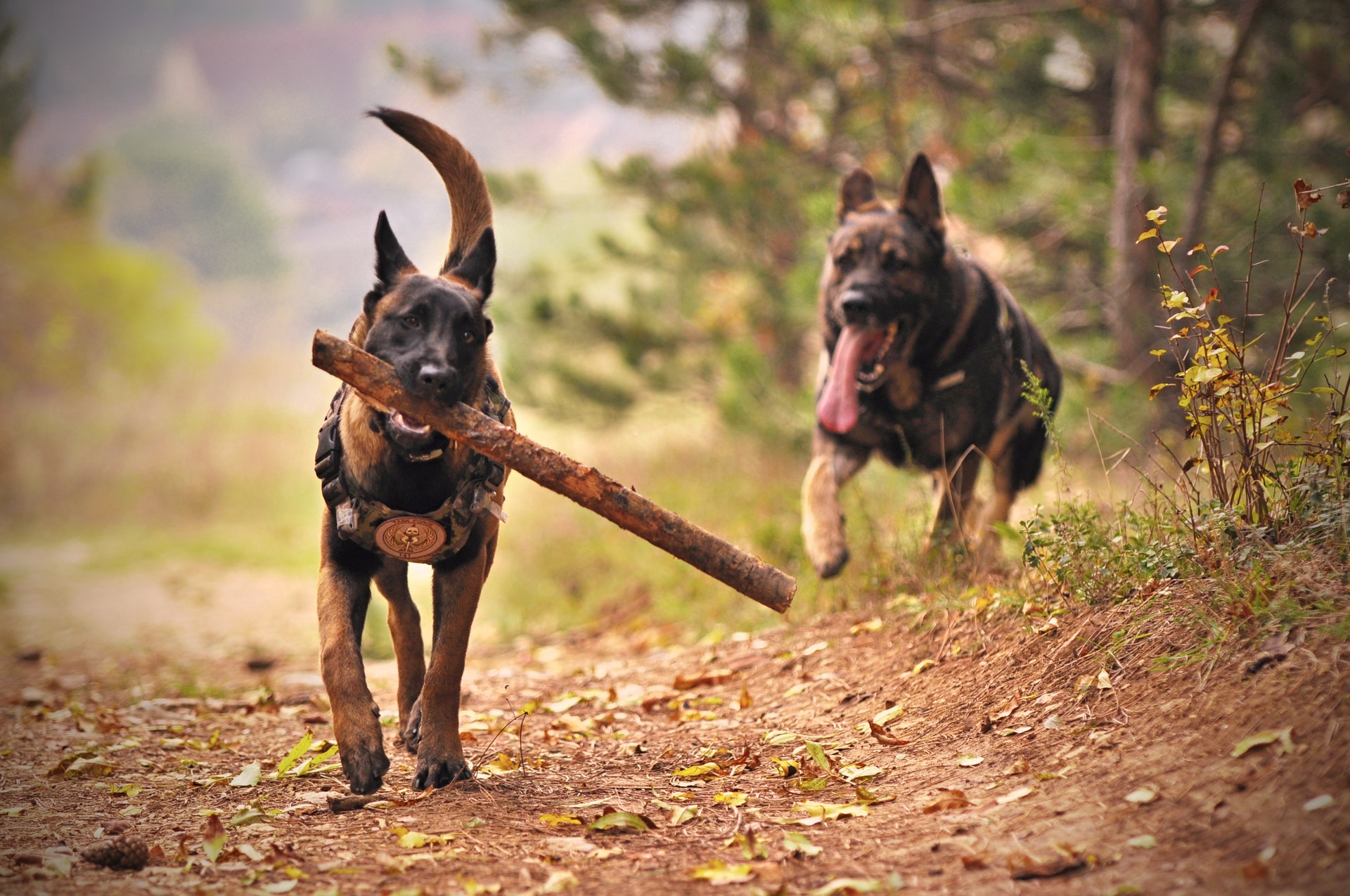
#2 – Provide Adequate Distractions From Digging
Most dogs decide to be antisocial due to a combination of boredom and under-stimulation.
So by making sure there are plenty of toys available both inside and outside the home is an obvious place to start.
Something as simple as an ‘indestructible’ rubber ring will occupy some dogs in the yard for hours on end.
Secondly, provide a level of exercise generally appropriate to your dog’s breed.
It is easy to forget that while a half hour jaunt around the block may tire out smaller frames, for traditionally ‘working’ varieties that may as well be getting out of bed.
Should time be an issue, then look towards making the exercise more intense.
Run/cycle alongside your pet or encourage retrieval games.
To put it simply, a tired pooch is unlikely going to be much in the mood for a few hours of digging.
#3 – Provide Shade And/Or Warmth
As we looked into earlier, a common reason for digging is with the objective of building a comfortable den.
In warmer climates/seasons it is essential to provide an area of consistent shade (remember that the sun does move over the day…).
How you do this is up to you, but ideally it ought to be somewhere with cool tiling permanently out of the sunlight.
Provide a comfortable bed and train them to get used to using it.
In colder seasons the obvious solution keeps them indoors while you are outside, but this may for many reasons not be an ideal solution.
A well-insulated kennel is traditionally ideal for this purpose but is something which ought to be provided as a matter of course.
If your pet has a deeply established habit then it will be necessary to train them towards using the kennel as an alternative to a ‘den’.
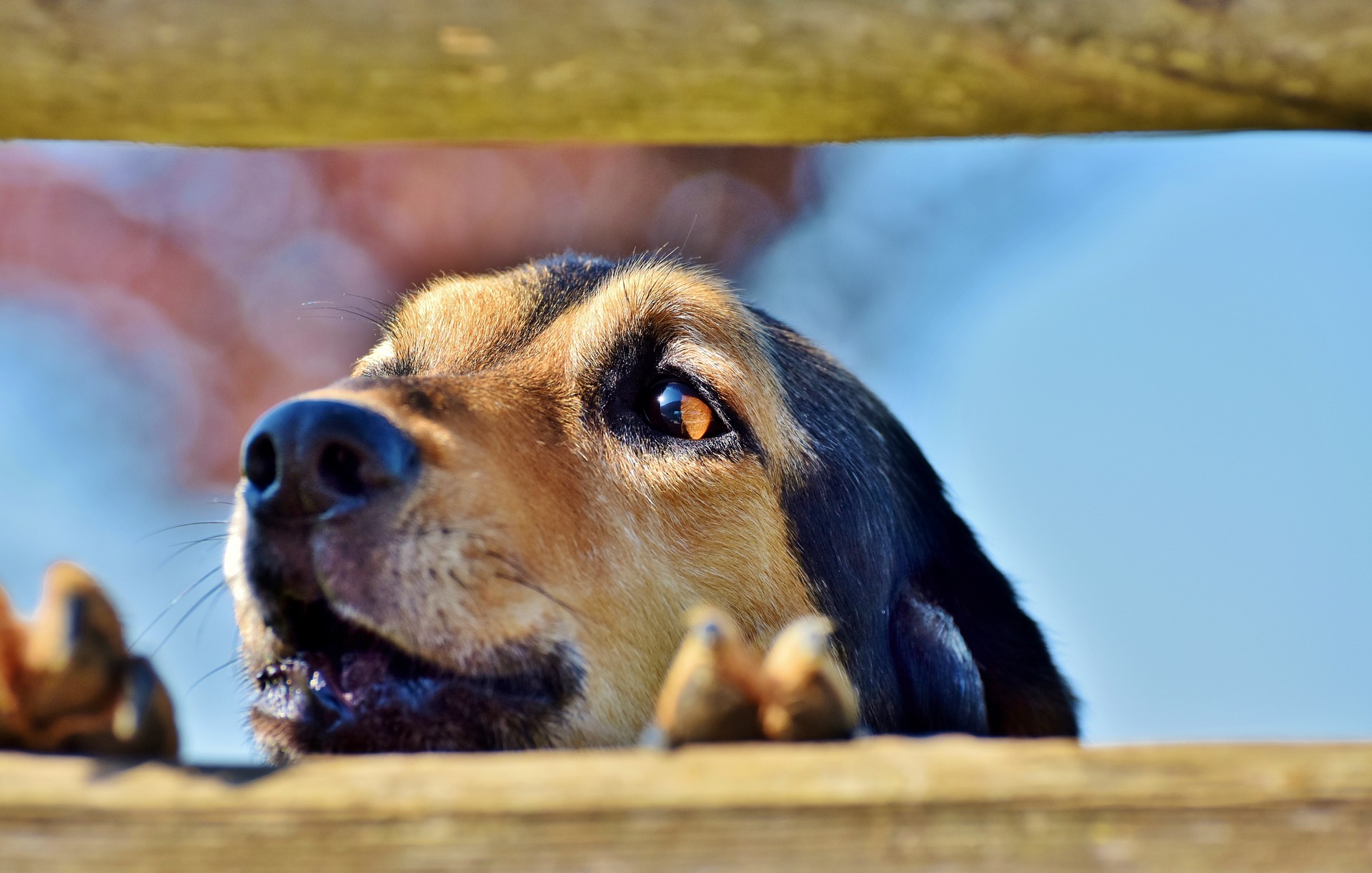
#4 – Creative Discouragements
99% of the time your dog will not dig when you are around.
After all, there are much easier ways of attempting to gain your attention.
So, in this case, we need to look for ways to discourage the behavior.
It is going to differ considerably depending upon both the layout of your yard and also the determination of your dog to continue digging.
Generally speaking, these work best for attention seeking dogs who have developed a minor habit/caught early.
So it may not be enough to dissuade habitual diggers.
For Example…
Isolate a favored spot…
Garden fencing (even cheap plastic) may be enough to prevent Fido from trying to dig.
They’ll (hopefully!) understand that digging is one thing but the destruction of property is seriously out of bounds and just give up.
On the other hand, they may just go dig elsewhere. It really depends on the situation and a degree of luck as to how effective this can be.
Laying bricks…
Consider spending a few hours laying rocks/bricks under the soil of regular digging spots.
This is a simple solution that after a few attempts will cause your pooch to realize that digging in that area is futile.
Whether or not they give up altogether though… see above!
Monitor your dog…
Find a way to monitor your dog in the yard where you cannot be seen.
When they start digging deliver a very loud distraction – a foghorn would be perfect.
Naturally, they will be startled by this!
Repeat as needed until your dog is so perturbed that they start to get the message.
Of course, the downside to this is it will take many hours of monitoring and likely irritate the neighbors.
Bury feces…
If all else fails then a final resort is to bury some of your dog’s droppings into the soil. O
f course, this only works with dogs who dislike the smell of their own poop.
It can be extremely successful – but of course potentially counterproductive for those who like to eat it.
#5 – Address The Pests
If you are sure your dog is digging to try and get at some pests, then it is down to you to solve the problem.
Establishing this as an exact cause can be difficult, and effective remedial action very expensive (and unreliable to deliver).
Consider asking the advice of pest control professionals, but remember that it could be something as simple as a next-door cat urinating on your flowerbed during the night.
Stop Unwanted Digging: Click Here To Discover How To Finally Stop Your Dog Randomly Digging Holes While Creating The Well Behaved, Obedient Dog Of Your Dreams… Even If You’ve Tried & Failed Before!
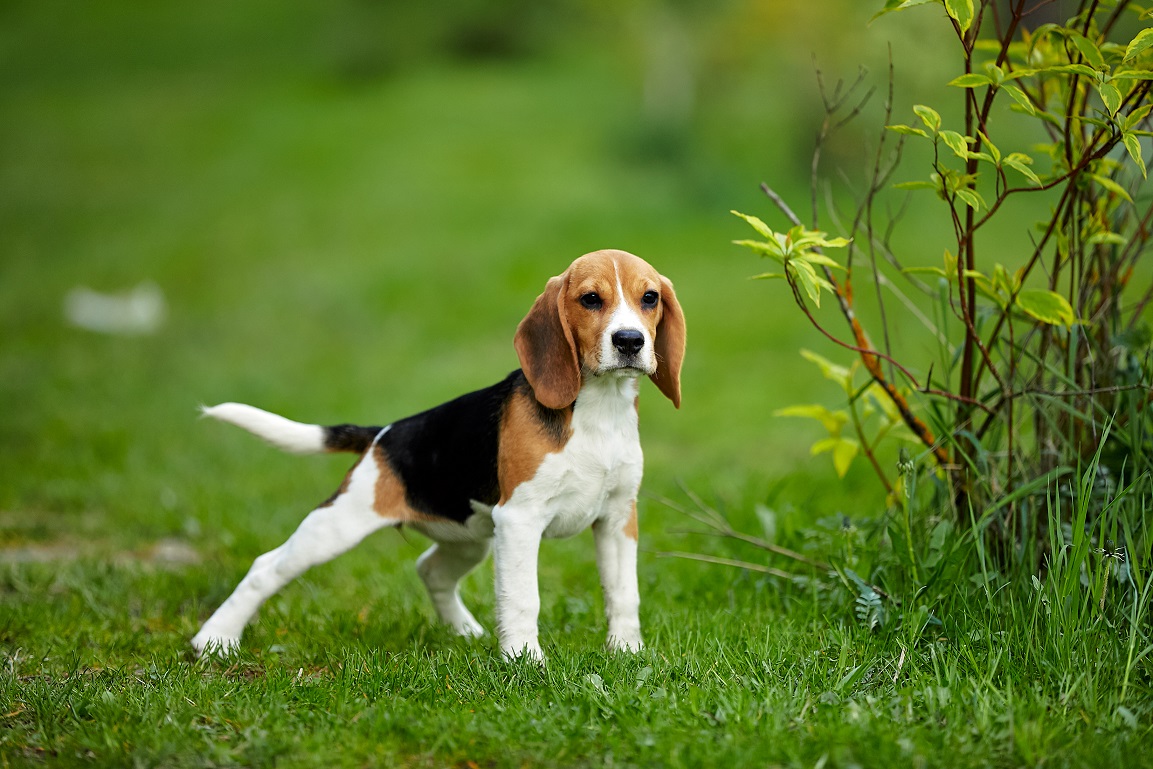
Final Thoughts
In the overwhelming majority of cases, dogs will choose to dig due to boredom, stress or anxiety.
It is not uncommon for this behavior to become apparent many years into their lifespan, and in these cases, a more proactive degree of effective interaction with your buddy will solve the issue.
Where it becomes a real problem is when it has become habitual, and then it can be difficult to prevent.
After all, your dog is choosing to dig for a reason.
So until that is addressed or a more interesting/effective alternative presents itself, they will simply just carry on doing so.
As a rule of thumb, effective general training and exercise will prevent inappropriate excessive/habitual digging from becoming a problem.
The key is to catch it early and figure out a solution.
But in most cases, a combination of the above tips will work the majority of the time.
Do you have anything to add from your own experiences with retraining dogs who love to dig? Feel free to add your comments below…
